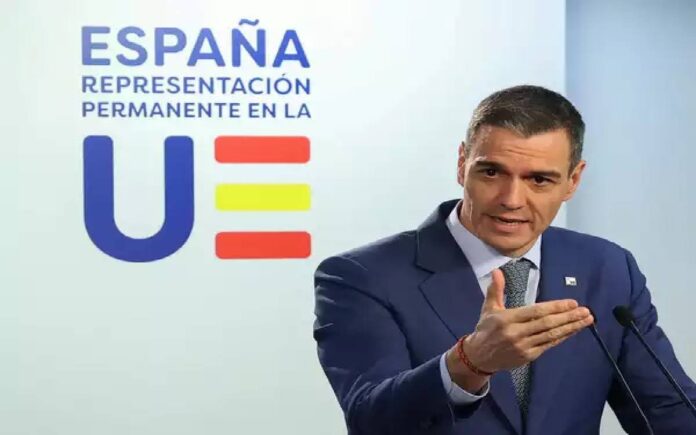Belgium: The European Union has issued a stark warning to its 450 million citizens, urging them to stockpile food and other essential supplies for at least 72 hours in preparation for potential crises. The European Commission’s latest directive highlights an increasingly volatile global landscape, citing war, cyberattacks, infrastructure sabotage, and extreme climate events as growing threats to stability.
New Guidelines Amid Heightened Security Concerns
According to the European Commission’s newly released Preparedness Union Strategy, the first 72 hours of a crisis are the most critical. To ensure resilience, EU citizens are encouraged to assemble an emergency survival kit, including essentials such as bottled water, energy bars, flashlights, matches, and identification documents stored in waterproof pouches. The 18-page document, as reported by CNN, warns that Europe is entering an era of heightened risk and uncertainty, requiring proactive measures rather than reactive responses.
European Leaders Sound the Alarm Over Military Threats
European Council President Antonio Costa underscored the urgency of bolstering defenses, warning of the continued threat posed by Russia’s expansionist actions. Speaking at a European Policy Centre event in Brussels, Costa stated, “If Russia considers that Ukraine’s borders are just a line on a map, why should it respect any other country’s borders”? His remarks emphasize Europe’s growing fears that the war in Ukraine could escalate into a broader conflict.
Brussels is now calling for robust military readiness across its 27 member states. This push for resilience aligns with the EU’s broader strategy of fostering self-reliance and psychological preparedness among civilians. The European Commission is also advocating for the inclusion of emergency preparedness training in school curricula, equipping young citizens with the skills to counter disinformation and navigate crises effectively.
Mounting Concerns Over US-Europe Relations and NATO’s Future
Amid growing uncertainties, tensions between Europe and the United States are adding to the alarm. The Trump administration’s insistence on increased European defense spending and its shifting geopolitical focus toward Asia have fueled concerns over NATO’s future. European nations are now accelerating efforts to strengthen their security capabilities, reducing dependence on U.S. military support.
NATO Secretary-General Mark Rutte, speaking in Warsaw, appealed for transatlantic unity despite the shifting landscape. “Let me be absolutely clear, this is not the time to go it alone. Not for Europe or North America”, Rutte declared. He stressed that NATO remains indispensable to European security, even as Washington pushes its allies to shoulder a greater share of the financial and military burden.
Europe’s Push for Strategic Self-Sufficiency
As European nations seek to reinforce their defense industries, the EU is also working to wean itself off its reliance on external security partners. Just as it diversified its energy sources to reduce dependence on Russian fuel, Europe is now prioritizing domestic military production and procurement.
Rutte acknowledged the need for a balanced partnership, stating, “Yes, Europe needs to know that Uncle Sam still has our back, but America also needs to know that its NATO allies will step up and play their full part, without restrictions and without capability gaps. It’s only fair. Reassurance is a two-way street”.
A Call for Vigilance and Preparedness
With geopolitical tensions at a boiling point, the EU’s Preparedness Union Strategy serves as a critical call to action for European citizens. By fostering resilience at both the individual and national levels, Europe aims to ensure that it can swiftly respond to emergencies, whether they stem from military aggression, cyber warfare, or natural disasters.



